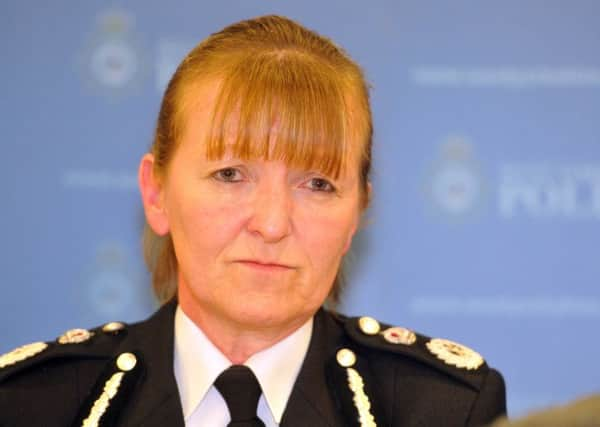Dee Collins: High-profile women leading to a more diverse police service


In that time, I’ve seen a huge cultural shift in attitudes towards women in policing from a culture where women were a tiny minority and were issued with a force handbag on joining, given a stockings allowance and told we were only allowed to wear trousers on nights, to one where women make up an integral and ever growing part of the service.
Last month every public body in England and Wales that employs more than 250 people had to publish their pay gap between what men and women earn. This includes police forces in England in Wales.
Advertisement
Hide AdAdvertisement
Hide AdFrom what I’ve seen so far shows a policing gender pay gap of between eight and 15 per cent when you measure the mean hourly rate for men and women across the whole organisation – compared to a national average of 18 per cent. When it comes to the top-paid in society, men outstrip women by four to one – and in policing there are far fewer women in senior policing positions and far more in the lowest-paid roles.
This issue isn’t one about equal pay for equal work – that was made illegal in the 1970s Equal Pay Act. Police officers have nationally agreed rates of pay based on their rank or grade – where gender is irrelevant.
But there is potential for the same issues that affect other sectors to come into play in policing – the impact of unconscious bias and difference in the way women and men negotiate on our recruitment and promotion, and the way men and women balance their careers with having children, including the influence of their employer as they make those decisions.
Particular to policing is the way certain specialisms receive pay supplements – such as for armed policing or public order – and these areas are still heavily male-dominated. Other roles also involve unsociable hours that conflict with family commitments and can limit women’s career progression.
Advertisement
Hide AdAdvertisement
Hide AdThere’s also a big difference in the gap between police officers and staff – partly because of the high proportion of officers that are men and a high proportion of staff that are women, and because, while officers’ terms and conditions are set nationally, staff conditions are set by their local force and can vary across the country.
From a service that has in the past been portrayed as male-dominated and masculine, we’ve seen a sea change and today some the UK’s most high profile senior police officers are women, such as Met Police Commissioner Cressida Dick, National Crime Agency director general Lynne Owens and National Police Chiefs’ Council chair Sara Thornton, with women now making up 30 per cent of senior police officers. But clearly we need to be enabling more women to fulfil their careers in policing.
Research shows that organisations with greater diversity perform better than those who do not. There are no quick and easy fixes for society, and the same applies to us. We are on the right road but it is going to take a lot of hard work over a long period of time to reduce this gap.
We’re seeing positive steps, such as forces ensuring strong and visible female role models in senior positions; coaching and mentoring schemes; strong policies to deal with sexual harassment at work; more flexible working to help with work-life balance; reviewing exit interviews to identify and act on trends; encouraging more women to take on specialist roles like investigations or armed policing; weeding out unconscious bias in promotion and recruitment processes and reverse mentoring where male managers are mentored by junior female colleagues.
Advertisement
Hide AdAdvertisement
Hide AdI’m confident that women joining policing now find a far more diverse and inclusive environment than I did, and that women joining in 10 years’ time will find it better still, with even more women at every level. That diversity will not only make us a better service to work for, but will make us a better service to the public that we serve.
Dee Collins is chief constable of West Yorkshire Police and the National Police Chief’s Council lead for Gender.